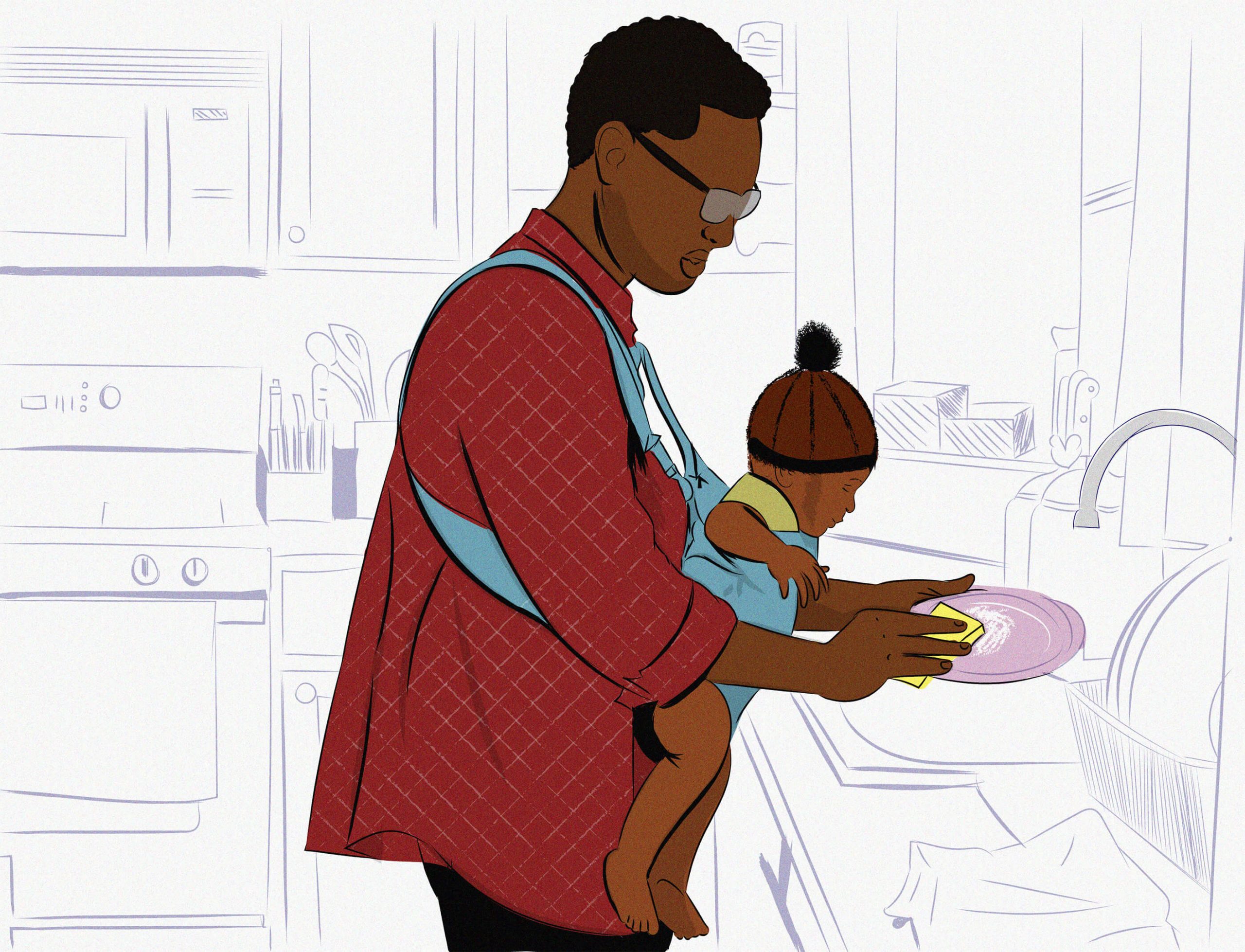To clarify, I mean a married woman who you are married to, and you’re trying to get into bed with. The lag could be for many reasons: work is kicking both your arses. You have kids. Everyone is tired at the end of the day. All of the above. But let me tell you something for a fact: nothing is more tiring and more of a turn off to a married woman than walking into the home, ready for some action, and there’s still dishes in the sink.
I know, it sounds like the 1960s, when a man comes home and throws his jacket on the armchair, whips out the newspaper and asks, ‘‘What’s for dinner?’’ like some horrific Mad Men script. But that script has definitely flipped in modern times. Now, both partners are working. Both partners want sex, and no one wants to have their legs in the air while trying to remember if the ants are going to get to the sugar left on the kitchen counter.
Choreplay, therefore, is what one does to get sex, in a way that doesn’t leave your woman ticking off grocery list items while you’re both trying to get to the same destination. I heard one of my married friends use it when she was talking about her sex life, or lack thereof.
“Sure, maybe I want to have sex, but if I walk into the house and it’s dirty, or our home manager is on leave and there is more of a load to be done by both of us around the house…or it’s something simple like the kids haven’t been put down and my husband is watching football instead…that gets me out of the mood immediately.”
Enter choreplay.
Doing chores around the house in a way that supports your partner, is a way that eventually leads to some sort of mutually satisfying intimacy. And here’s why it is so important to married women all over the world: because it allows them to realign the focus on building the relationship, through said intimacy.
Many women, particularly those who don’t have regular or live-in house managers often talk about the fact that they feel like they are a manager in their household, as opposed to a contributing member. They have to remember, on top of everyone’s birthdays and anniversaries, whether the tissue is running out; whether there is enough cooking oil in the jar; if it’s time to replace something in the kitchen – when did it break even?; where their partner’s wallet is… and then, when they do feel perhaps a little overwhelmed and ask for assistance, their partner tends to say something vague and counterproductive like “Just tell me what to do, and I’ll do it.”
The irony here is, if you live in the same house, shouldn’t you know when the tissue is running out, because you have the eyes to see it? Must a task be delegated by an administrator for it to be acted upon? And for the love of God, why don’t you know where your own wallet is?
This is what women all over the world call the mental load, or the second shift. You leave your shift at work to come and do a shift at home, and doing that shift at home leaves you too tired to do anything else. Anything else includes anything between the sheets, and it’s ruining partnerships everywhere.
Granted, it’s easy to talk about these things, how everyone should chip in on the chore-front, but not so easily resolved. Even in a supposedly evolved society, many partners who are men feel like they shouldn’t have to do the grunt work around the house, or take part in the nurturing of young ones, or have to pick out the present for whatever party is on the planned social calendar.
And this is where we go wrong: by allowing the trend to continue. I heard about a woman who has a money jar in her home, and every time her husband or her sons would ask her where something is, especially something of theirs, they would have to put money in the jar. Long story short, I think she bought a car.
News flash: taking care of your own baby isn’t babysitting. It’s called parenting. Leaning heavily on your tired wife to locate all the errant pairs of your socks isn’t fun or cute outside of a romcom. It’s exhausting. If you’re wondering why your fun times are dwindling, maybe it’s time to look at your own behaviour. Are you the type who drains, or the type who delights? Do you participate in creating a relaxing environment to get down, or are you just a Debbie Downer? And is your partner’s intimacy important enough for you to show some initiative – you know, the way you seem to do at work so easily – at home? Real romance happens every time you can say, “I already did that, babe.” Sploosh!

